Climate Change's Impact on Monsoons: A Growing Crisis
Written on
Understanding the Monsoon's Role
The monsoon is a critical weather pattern that has shaped civilizations for millennia. It’s currently raining heavily, a continuation of a pattern that has persisted for thousands of years, defining our agricultural practices and economic structures. However, this once predictable cycle is undergoing dramatic changes due to climate change. Increasing rainfall is leading to flooding, while droughts are devastating crops, upsetting the balance that has sustained communities for generations.
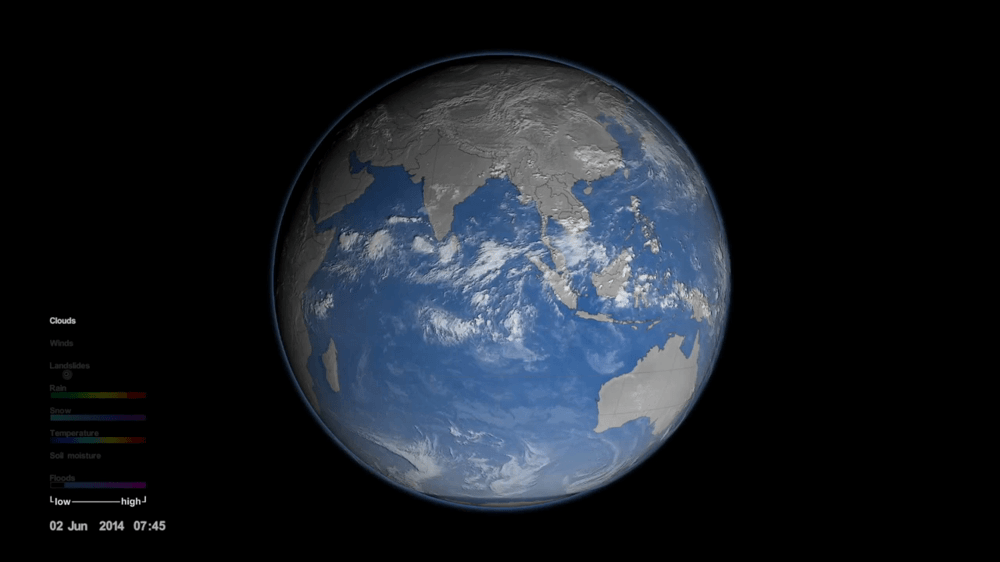
The Mechanics of the Monsoon
The monsoon operates primarily based on temperature differentials. When the land heats up more than the ocean, it creates areas of low pressure that draw in moist air from the ocean. This process is complex, yet fundamentally dependent on temperature variations.
To visualize this, consider the Indian subcontinent during summer. The land heats significantly compared to the ocean, generating low pressure that attracts moist, high-pressure air from over the ocean. This influx of air contributes to the monsoon rains, which are essential for agriculture.
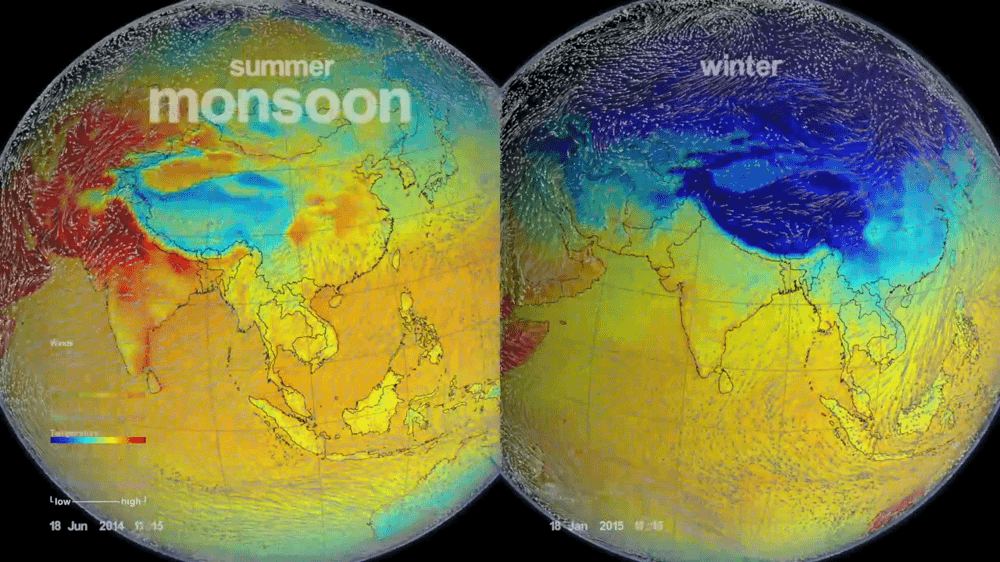
Summer Monsoon Dynamics
During summer, the intense heat over the Indian landmass creates conditions that pull moisture from the ocean. The Himalayas play a crucial role here, as the monsoon winds encounter these high elevations, resulting in significant rainfall.
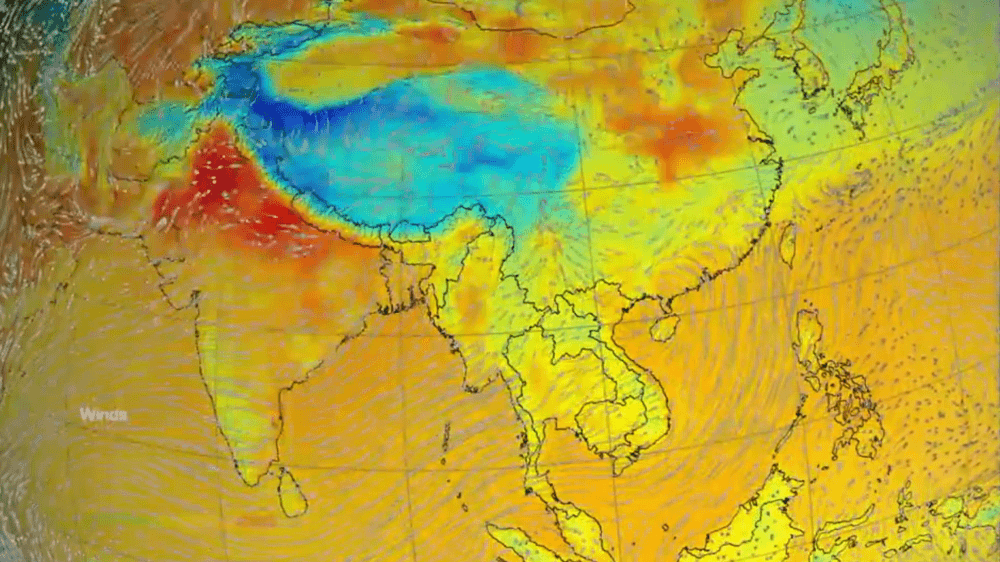
Winter Monsoon Characteristics
In winter, the situation reverses, with winds blowing from land to sea, resulting in less intense rainfall. However, the geography of regions like Sri Lanka means that even this weaker monsoon can lead to substantial precipitation.
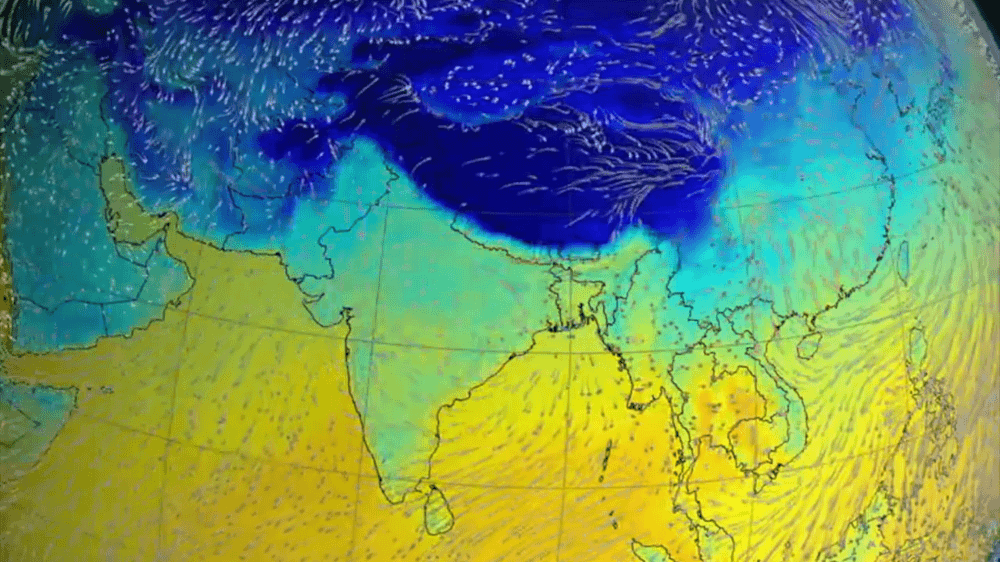
Consequences of Climate Change
As temperatures rise, the impacts on monsoon patterns become increasingly severe. Although overall rainfall may decline, the intensity of rain during individual events has increased, leading to destructive floods. For instance, a staggering 500 mm of rain fell in parts of India in just 24 hours in 2017, resulting in widespread displacement and loss of life.
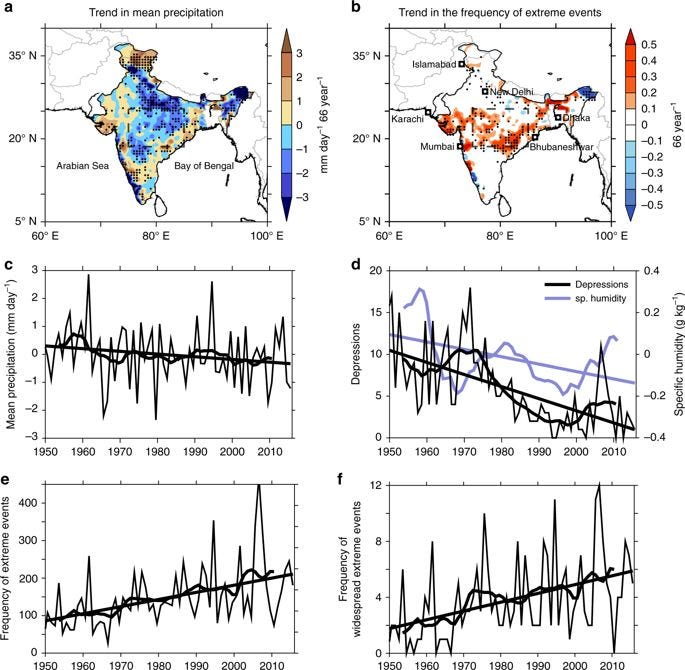
Balancing Forces
Temperature remains the pivotal factor influencing monsoon behavior. Warmer oceans lead to increased evaporation, resulting in heavier clouds, but also create lower pressure, which can weaken the monsoon. This delicate equilibrium has been disrupted, resulting in alternating cycles of drought and flooding.
Roxy Mathew Koll, a climate scientist, notes that areas in India are experiencing more frequent heavy rainfall alongside prolonged dry spells. While projections regarding total rainfall vary, there is strong consensus that extreme events will continue to rise.
The Future of the Monsoon
The sustainability of the monsoon is intrinsically linked to human activities. As climate change exacerbates weather patterns, the monsoon's reliability as a source of water for agriculture and daily life is under threat. With every passing year marking new temperature records, the urgency to address fossil fuel dependency becomes more critical. If we fail to act, we risk returning to a time when the monsoon was not a friend, but a foe.
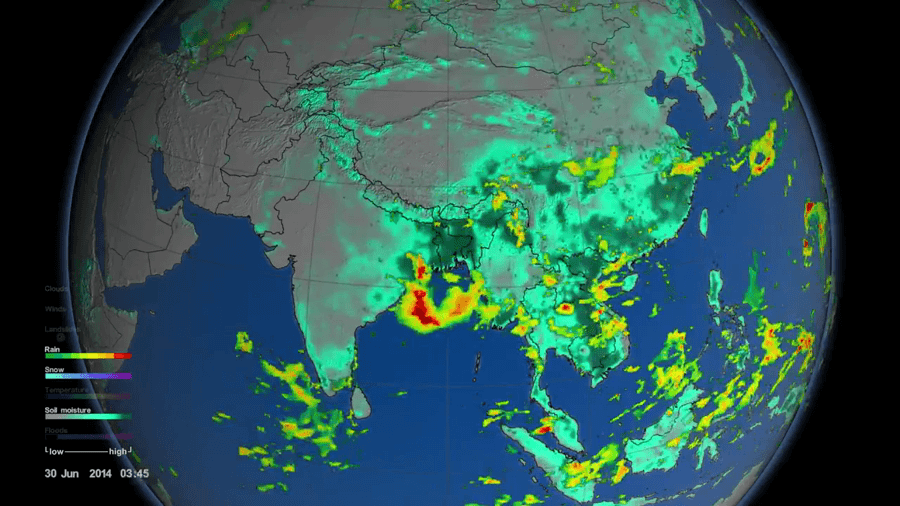
Rising Risks: Monsoon Impacts with Extreme Weather
The video "Monsoon Impacts Worsen with the Rise of Extreme Heat and Wildfires" explores how climate change is intensifying the monsoon's impact on weather patterns.
Continuing Challenges: Floods and Droughts
The video "Parts of India parched, others badly flooded as climate change affects monsoon season" discusses the contrasting effects of climate change on different regions of India, illustrating the growing challenges faced due to changing monsoon patterns.